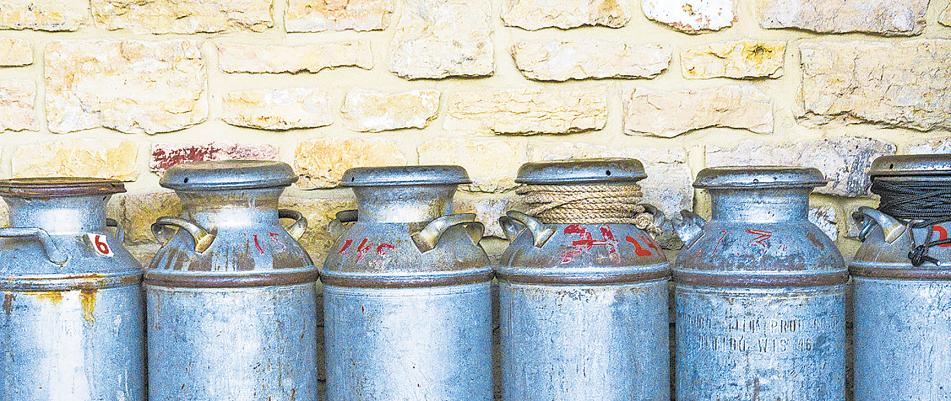
3 minute read
The joy of antiques
from How to Guide_062720
by Shaw Media
Clarks Run Antiques owners Steve and Pam Shanley invite you to visit their tasting room for a wonderful selection of wine and beer. Sit on the outdoor patio and enjoy live entertainment.
Those who seek out and collect antiques are driven by at least one of two passions: for the objects themselves and what they might mean to an individual or their interest in history, or they recognize their value and hunt antiques in order to connect with a collector. Sometimes passion and profit collide.
But there’s no denying that antiques and collectibles intersect at the point where nostalgia meets art in everyday things.
The character of older products and the sense of history dating back decades or generations can be inexplicably attractive. It’s because we know every antique piece has a story. Some have multiple stories embedded in the array of nicks and scrapes marking them. And we’re often free to imagine our own stories about their pasts.
Antiques don’t go out of style. No matter what the piece, there’s a good chance it will always be of interest to someone — a collector, a museum curator, a professional collector or an auctioneer.
Usually, a piece should be at least 50 years old to be considered a true antique. But just because it’s old doesn’t mean it’s an antique.
“Collectible” and “vintage” are not synonymous with “antique.” That’s an important distinction to keep in mind when shopping for authentic pieces.
Many items considered antiques are simply collectibles. View-Masters, vinyl records, spoons and even thimbles are some examples of popular collectibles that are not antiques. Also, vintage items are usually from a certain time period, such as the 1970s or 1980s.
When looking for authentic antiques, quality, craftsmanship, manufacturer and history of the piece are paramount.
WHERE TO FIND ANTIQUES
Online stores and sites such as eBay, flea markets and estate sales are great places to find antiques or collectibles. They might even offer you a good deal. But unless you really know your antiques use these venues with caution. Know the difference between a genuine antique and a fake. And never buy something without inspecting it.
Auction sites may be convenient, but you will have to add the cost of shipping and insurance to the price of the item. It is cheaper to find the same item at a local shop or estate sale. You can use an online auction site for research, to see what other people are bidding on the same or similar pieces. But to truly find the best and most authentic deals, shopping your local antique stores is your best bet.
You are much more likely to get a better deal on an authentic piece at your local antique shop. Local shop owners like to build a rapport with their customers and love to talk about the history of their inventory. When you shop locally, you will also have the assurance of being able to validate works before purchasing them.
FORMING A RELATIONSHIP
After you have located two or three prospective dealers, visit their shops.
If you are searching for a particular item, most dealers will try to locate it for you. If they don’t have the item, they might be able to tell you about another dealer who carries it.
Creating a good relationship with an antiques or collectibles dealer has many advantages. Dealers can give you their assurance you that the pieces are authentic and often offer regular clients better prices. Reputable dealers can also help you find other resources, such as conferences and conventions that can help educate you in the art of finding the perfect antique for your home or office.
Antique, Vintage and Shabby Chic. Discover something new each time you visit



TASTING ROOM Enjoy OurWonderfulWine and Beer Selection Outdoor Patio with Live Entertainment and Seating for 60 Hrs:Tues. -Thurs. 10 to 5; Fri. - Sat. 10 to 8; Sun. 11 to 6 Clarks RunAntiques











